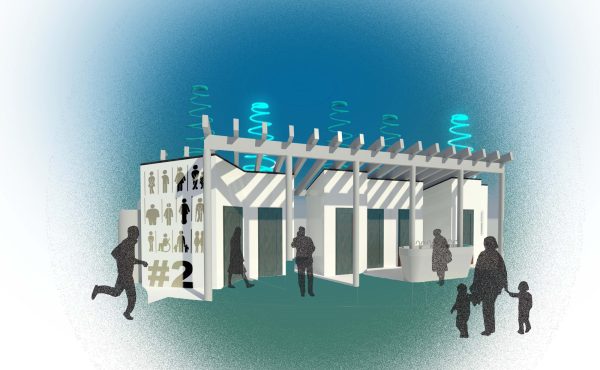

Thanks to David Miller’s dogged pursuit of a City of Toronto Act, Rob Ford can spend the next five months vowing to radically slim down council, from 44 to 22, in order to deliver on his election promise to become Toronto’s biggest loser.
According to sections 128 and 135 of the Act, which was passed in 2006 and updated this year, Toronto now enjoys the power to create or erase municipal wards, provided there are least five members of council. Presumably, Ford wants the new municipal wards to be co-terminus with Toronto’s 22 federal ridings.
The city’s municipal code is silent on how council would enact such a self-immolating reform, but the task seems exceptionally daunting: he has to round up at least 22 votes (plus his own), and those would need to be sourced from the subset of councillors who (i) agree with Ford’s position; and (ii) feel confident they could survive an electoral shoot-out with the new ward’s other incumbent.
After all, 22 sitting councillors need to back a motion that would potentially eliminate their own jobs. It’s like Russian roulette, except with worse odds.
Whether or not Ford has thought through the politics is unclear. His gambit, really, is to drink deeply from the well of voter dissatisfaction by plugging away at the hoary old allegation that Toronto is over-governed, and therefore profligate.
“People in Toronto are represented by 22 federal MPs and 22 provincial MPPs,” he stated at his launch [PDF] in March. “Even the public school system has 22 Trustees. Why do we need 44 councillors? Twenty-two fewer councillors will save the taxpayer at least $10 million each year, if not more [sic].”
The $10 million in savings is equivalent to a little more than one one thousandth of the gross budget, and could be wiped out by a slight spike in diesel fuel costs. Nor does Ford account for the fact that fewer politicians will almost certainly lead to larger councillor budgets and more demand for the city’s 311 call centre service. The net savings, in other words, will be less than $10 million.
Now what about Ford’s implication that Toronto is over-governed?
Certainly, the spectacle of lengthy but apparently unproductive council sessions (frequently featuring battles instigated by Ford himself) feeds the public’s impression of a city beset by inefficiency and waste.
True? Well, consider the numbers:
Toronto currently has just over 56,000 residents per councillor. Under Ford’s plan, that ratio jumps to almost 113,000.
How does that figure compare to the federal and provincial governments?
In Ontario, there are approximately 106,000 people per MPP. As for Ottawa, Stephen Harper’s Conservative government recently pledged to add 30 seats to the House of Commons, reducing its resident to MP ratio to 98,500.
As it happens, Toronto’s 44-member council is actually in the middle of the pack when compared to other GTA municipalities.
Mississauga councillors, on average, represent the largest number of constituents (over 66,000). But Vaughan, Richmond Hill, Caledon, Markham and Brampton all have significantly more municipal politicians per capita than Toronto (see table below).
Even the City of Ottawa, which was also amalgamated during the Mike Harris years, has 44% more councillors per resident than we do.
There’s no doubt that council is too often waylaid by fights over issues that have very little relevance in the grand scheme of things. But it doesn’t follow that fewer councillors will make the ship of state operate more efficiently.
Rather, fewer councillors almost certainly means less oversight. In fact, if Ford became mayor and managed to pull off his politically improbable council reduction scheme, Torontonians would have the dubious distinction of being Canada’s most mathematically under-represented inhabitants.
So for all those irate voters who’ve been bellowing that the city isn’t listening to their litany of complaints, I suggest they rest their vocal chords, because Rob Ford’s trimmed down council will be indisputably hard-of-hearing.
![]()
All figures below are drawn from municipal websites and Statistics Canada, with budget figures for fiscal 2010.
City of Toronto (amalgamated): 44 councillors
Pop. 2.48 million (56,340/councillor)
$9.2 billion operating ($3,710/resident)
$2.4 billion capital ($970/resident)
![]()
Region of Peel: 25 councillors
Pop. 1.24 million (49,600/councillor)
$1.1 billion operating budget ($890/resident)
$2.2 billion capital budget ($1,780/resident)
![]()
City of Mississauga: 11 councillors
Pop. 729,000 (66,300/councillor)
$550 million operating ($754/resident)
$320 million capital ($440/resident)
![]()
City of Brampton: 10 councillors
Pop. 434,000 (43,400/councillor)
$408 million operating ($940/resident)
$241 million capital ($555/resident)
![]()
Town of Caledon: 8 councillors
Pop. 57,080 (7,135/councillor)
$54 million ($1,000/resident)
$23 million ($400/resident)
![]()
York Region: 20 councillors
Pop. 1.03 million (51,600/councillor)
$1.4 billion operating ($1,360/resident)
$3.5 billion capital ($3,390/resident)
![]()
City of Vaughan: 8 councillors
Pop. 240,000 (30,000/councillor)
$205 million operating ($854/resident)
$50 million capital ($203/resident)
![]()
Town of Markham: 12 councillors
Pop. 303,000 (25,2500/councillor)
$154 million operating ($508/resident)
$78 million capital* ($254/resident)
* Excludes water works
![]()
Town of Richmond Hill: 8 councillors
Pop. 181,000 (22,625/councillor)
$117 million operating ($650/resident)
$22 million capital ($121/resident)
![]()
City of Ottawa (amalgamated): 23 councillors
Pop. 895,000 (38,900/councillor)
$2.3 billion operating ($2570/resident)
$624 million capital ($700/resident)




14 comments
Rather than compare to other Ontario cities, what are the experiences and ratios for the peer cities that Toronto competes against on the world stage? I honestly could care less about how many councillors Brampton has – what matters is how Chicago, Vancouver and SF are governed. Harder to translate, but still interesting to learn, would be the stats on London, Paris, Singapore, Melbourne, etc. What are the case studies here, good and bad, and why follow one version or another? What kind of problems or successes have large council-cities had vs small-council cities in North America and the world? That would be the better way to study the matter rather than just thinking about the stats locally. I don’t like Rob Ford, but I don’t want to dismiss the point without comparative thought.
New York has something like 13 federal districts, a bunch more state districts, and 51 local council seats. Chicago has 50 aldermen. On the other hand, Houston has 14 council members, Vancouver has 10 and Philly has 17.
I don’t really see a problem with Toronto having 44 if you think NYC and Chicago are reasonable role models, but if you see all of these cities as dysfunctional compared to, say, the nimbleness of Dallas, maybe there is a case to be made.
For such a stickler of the rules, Ford seems to forget them, like not promoting any election stuff on a councillor web page. He has a banner ad for his mayoral bid.
http://robford.ca/
But I guess we shouldn’t be surprised — once a meat head always a meat head.
I don’t know how Ford thinks this is the winning platform. Of all the issues Torontonians are dealing with, is the one that is foremost in our minds that it is too easy to get a hold of a city councillor? Or that they are too responsive?
Seeing as he doesn’t charge the city for expenses, presumably he pays for that website himself, so I guess he can put whatever links he want on it.
It says “© robford.ca” at the bottom. Unless he created a company or not-for-profit called that, I don’t think non-existent entities can hold a copyright.
Toronto is one of Canada’s most powerful Liberal strongholds. It has been decades since any PC/Conservative got a seat in the former Metropolitan Toronto, let alone former Toronto proper. If Rob Ford ends this election in one of the top 3 places, either one of two things will happen:
1. The Conservatives will continue to be shut out in the provincial and federal elections, and it will prove that Torontonian voters are some of the dumbest in the country.
2. The Conservatives will get a few seats in the 416, thus turning Toronto into a political battleground (and more money coming back into the city).
I think iskyscraper is right. Comparing spending to Mississauga or Richmond Hill isn’t fair. We should be comparing with Vancouver, Calgary, Montreal, Ottawa, or some American cities like Chicago. But even still, raw spending doesn’t mean anything. If we’re spending twice (or half) as much on something as one of those other cities, that doesn’t mean we have more or better (or worse) services.
I think Rob Ford’s point is that you have to cut similarly almost everywhere. $10 million from reducing council size. $20M from this dept. $20M from that one. $5M from here, $25 from there. Eventually, you’ve eliminated the shortfall. He’s getting a lot of support from the perception that the city is spendthrift, irregardless of whether it’s true or not. (New) taxes and revenue are most definitely up (the operating budget is over $2B/year higher since Miller took office), but are services? I mean to the average person are the garbage cans being cleaned more often? Do you notice more buses? Heck, in Kensington Market I’ve noticed that the few garbage cans that existed are now gone. The St. Clair and now Bloor street redevelopments have both been disasters, regardless of wether you think the end results are good or bad ideas.
This populist streak is unfortunately resonating, but only time will tell whether he can keep it up. Also, populists have a nasty habit of realizing that their perceptions were wrong once they actually get into power. This doesn’t even take into account Toronto’s weak mayoral system.
Ben, clarify this: “The Conservatives will continue to be shut out in the provincial and federal elections, and it will prove that Torontonian voters are some of the dumbest in the country.”
Tactically stupid, I might agree; however, I am not sure I share your estimation of Reform Party intelligence.
@Ben. Decades? It’s not as long as you think. It’s only been seven years since the Ontario PCs were swept out of Toronto–11 years since 8 MPPs from Toronto were elected under the banner Mike Harris. Rob Ford’s fate will hardly affect the next provincial or federal election. Unscientific, I know, but I’ve been surprised at how many self-described Tories won’t vote for him because they think he’s a clown and how many self-described Liberals think he represents positive change from the “downtown” lefties.
As usual, a great article.
I am a little concerned about the direct comparison of budgets of the local municipalities in 905 to Toronto. Toronto is a single tier municipality, while the surrounding regions are two tier. It should be Peel+Mississauga etc
Using the figures from the article, If the capital and operating spending per resident is combined in York and Peel, we get a different financial image. To maintain simplicity, I have also combined the per resident spending for both capital and operating into one per resident figure:
Peel+Mississauga: $3864
Peel+Brampton: $4165
Peel+Caledon: $4070
York+Markham: $5512
York+Richmond Hill $5521
York+Vaughan: $5807
Toronto: $4680
What about Ottawa, a one-tier municipality at $3270? This figure doesn’t account for the spending of the National Capital Commission and the Federal Government.
Bruce, thanks for compiling the info. Readers should note thought that including the capital budget might be misleading. Capital expenditures are by nature upfront costs. Sewer trunks, roads, water treatment, fall along these lines. The carrying costs of these are reflected in the operating budget.
I would also like to add another tidbit. When one looks at the figures for the operating budgets the amounts are expressed per person. Translate these to a per household amount (average 2.53 persons per household) and the figures for Toronto should open some eyes. The operating budget per household is $11,840. vs. average property tax at $2300 (excludes education portion). Yep real sustainable.
We need more councillors not less.
I’d love to see the introduction of party politics with some form of PR that includes at-large seats.
Glen,
That same rule would also apply to every municipality. Multiply all their numbers by 2.53 and you get equally large figures. The difference for every municipality is made up by commercial property taxes.
Taken per person, Toronto’s spending does not seem that out of line, particularly given the fact that Toronto has a significantly wealthier tax base.
Toronto has lower per capita spending than the surrounding York region municipalities which blows my mind because services in York region aren’t even close to what you get in Toronto.
As for comparison with Peel, Toronto is 21% higher than Misissiauga and 12% higher than Brampton. I’d say we get what we pay for. Our services are much better than both. And spending in Mississagua is skyrocketing now and their day of reckoning for their sprawly ways is coming. I doubt they’ll be able to maintain such a high differential for long. Give it a few years and their spending will be in line with York region.
That’s the best you can come up with to shoot down Ford? He is wrong about that because he could never get them to eliminate their own jobs but he is still a good choice for Mayor. I never understand the media saying who the front runner is? Who decides? Let’s face it, it’s a long way off and I’m not sure who I will vote for but I do like Ford as of now. Anyone that wants to cut expenditures will get my vote. And as far as Smitherman, I think he is done, after coming off the Ehealth fiasco and he better come up with something good if he even wants to be a close second. Is he (Smitherman) going to explain his part in eHealth? I doubt it, and for that, we’ll see you later. The story on Smitherman in the Star today was quite interesting and the comments were way off the deep end against Smitherman, I have been reading comments for over a year there and never seen as many people split on the topic as today or any subject. Does that mean anything? You bet. Although it’s only 80 people I think that is a good indication how the public feels.
Daniel … Toronto
http://bit.ly/Daniel2010
Saying that Toronto’s high spending is appropriate given it wealth, while ignoring that its residents* pay less tax is surprising.
* Unless you are renter whom lives in a multi residential rental building. Seeing that you are less likely to vote (according to stats) and generally unaware of your tax burden you have been historically discriminated against. Squeaky wheel and all that.